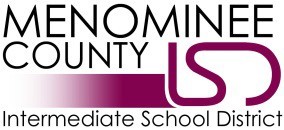School Mental Health Services Continuum
What is Mental Health?
Mental health is something that everyone has, from infancy to adulthood, that affects how people think, feel, and act. Although it is often thought of as the opposite of mental illness, mental health includes both the absence of illness and the presence of high levels of wellbeing. Wellbeing includes having positive emotions, feeling fulfillment, contributing to the community, and being able to cope with daily life stressors. Mental health is also dynamic and fluid; someone experiencing a mental health challenge will not always be. People are capable of healing, transformation, and recovery.
School mental health includes a continuum of services and supports to promote student and staff mental health by fostering social and emotional wellbeing and positive school culture, while eliminating barriers to wellbeing and success for students. Having mental health providers embedded within the school increases health equity by ensuring students and staff have access to the prevention, early intervention, and treatment supports that they need, when they need them, free of stigma.
To determine student needs, district staff will use multiple data points. There are traditionally three tiers of support:
- Tier 1 - Students that do not require any specialized intervention. District wide proactive strategies are utilized by all staff.
- Tier 2 - Students require some level of intervention beyond the services that are universally offered.
- Tier 3 - Students that require intensive interventions
If you have concerns about your child's well being, contact your child's teacher or building administrator.
If you would like additional information about school based mental health services, contact
Mary Stein, LMSW
MC-ISD Mental Health Director
mstein@mc-isd.org
906.863.5665, ext 1012

Tier 1
Interventions that focus on promoting health and preventing adverse outcomes among all children in the school. Mental health promotion and a climate of care, connection, and belonging is present for and among all students and staff. Universal interventions include applications of school wide social emotional learning, bully prevention, school wide behavioral support, positive cafeteria and recess experience for all students, as well as fostering a school climate that promotes positive mental health. This includes school district policies that advance equity.

Tier 2
Services may include initial assessment, brief targeted interventions provided by trained school based mental health clinicians, small groups for student coping with specific challenges, check in/check out. Interventions are focused on preventing challenges from progressing and may include referral to mental health providers outside of the school setting.

Tier 3
Students who have intensive needs struggle to learn without proper support in place. At this level services may include referrals for long term mental health counseling, intensive individual/family counseling, psychiatry, treatment for suicidality, substance use treatment - all of which are supports received outside of the school setting.

